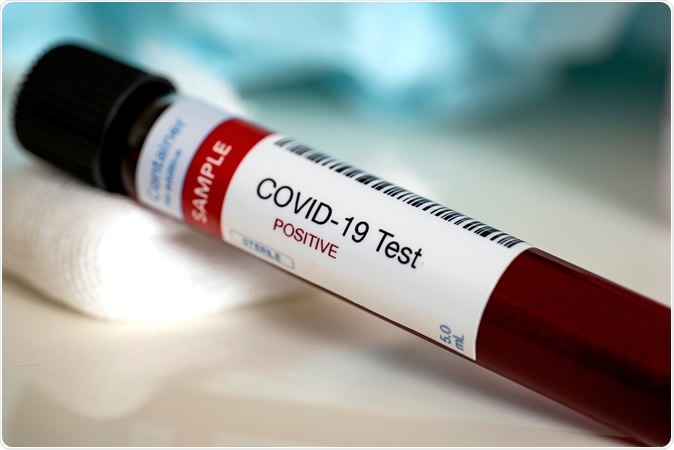The COVID-19 disease pandemic is raging across the world, costing tens of thousands of lives. Many countries have enforced widespread, if not universal lockdowns, to prevent the spread of the virus to new areas, carried by infected travelers.
The problem with the severe acute respiratory syndrome coronavirus 2 (SARS-CoV-2) that causes COVID-19 disease is that, unlike many other viral illnesses, it appears to asymptomatic in up to 80% of cases. This makes it difficult for people to know if they have been in contact with an infected person or are infected themselves unless they undergo testing for active infection through nasal swabs and the like. Such tests are not freely available in most countries even months after the pandemic was declared.
Now, a diagnostic test is being released for use, based on antibodies developed against the virus, causing COVID-19. The test has been developed by Emory Universities, with efforts from the immunology research wing, the Emory Vaccine Center, and Emory Medical Laboratories (EML).

The antibody test is performed as a standard blood test using one vial of blood. Image Credit: Myriam B / Shutterstock
The test should help researchers understand what kind of antibodies develop, the time period over which they develop, and how long they last. These serological tests will thus be of great importance in understanding the natural history of a non-fatal COVID-19 infection. This will guide scientific and epidemiological experts as they deliberate on how to assess the impact of the virus as well as drafting measures to bring back societies to normalcy after the lockdown period.
Who will have access to testing?
The Clinical Immunology department of EML will do all testing. The initial batch of tests will be for patients hospitalized at Emory Healthcare, as well as some categories of inpatients, healthcare providers, and staff. Later, the scope will be enlarged dramatically, from the initial 300 tests a day to 5,000 tests a day by the middle of June, over a period of weeks.
The testing and processing cycle will be automated, using commercial equipment. To help with this, Emory is working on collaborations with manufacturers of diagnostic equipment.
Commending the support given by the Marcus Foundation, whose $3 million will help begin the long process of handling the tests, Emory CEO Jonathan S. Lewin says, “Bernie and Billi Marcus’ partnership is vital to this important step forward in America’s COVID-19 response.”
What will the test show?
Existing tests detect the presence of the virus in nasal swabs. The unavailability of testing kits made it impossible to tell if a person with mild or moderate symptoms like fever, body pain, coughing or sneezing had COVID-19 and was passing it on, or just a simple cold.
Secondly, the test sometimes threw up negative results even in the presence of infection. Thirdly, mass screening was not possible though a large percentage of COVID-19 cases are now thought to be asymptomatic.
The antibody test will show if people in all these categories had active COVID-19 infection previously. The antibody test is done like any other blood test, with a single vial of blood, and will show if the person has antibodies to the virus.
Antibodies are protein molecules secreted by the plasma cells (transformed B lymphocytes) when they come into contact with antigens foreign to the body. The process of antibody production typically takes days. Still, if they are of the right type, the antibodies bind with the microbe carrying those antigens the next time it enters the body. This either tags the virus for destruction by other killer immune cells or locks it to other molecules that destroy the infected cell. Thus, antibodies can protect the person against recurrent infection with the same organism. This is called active immunity.
What are the implications of such testing?
The researchers underline the fact that the test can only demonstrate the presence of antibodies and not the immune status of the tested individual. However, more specific tests such as virus neutralization assays are needed to demonstrate protection against re-infection with the virus. Virus neutralizing antibodies are capable of eliminating the infection from the body each time the virus comes in contact with the host.
Emory is at the forefront of research into how and when the body develops immunity to the virus, causing COVID-19. The researchers are working on tests to determine the presence of neutralizing antibodies, and how long they are produced in the host. This would indicate the period of active immunity.
Says John Roback, medical director of Emory Medical Laboratories, “The results from these antibody tests will have important implications for determining our next steps in responding to this pandemic.”
Source:
Emory.edu. (2020). Emory develops diagnostic antibody blood test to determine antibody-responses to COVID-19. https://news.emory.edu/stories/2020/04/coronavirus_antibody_blood_test/index.html